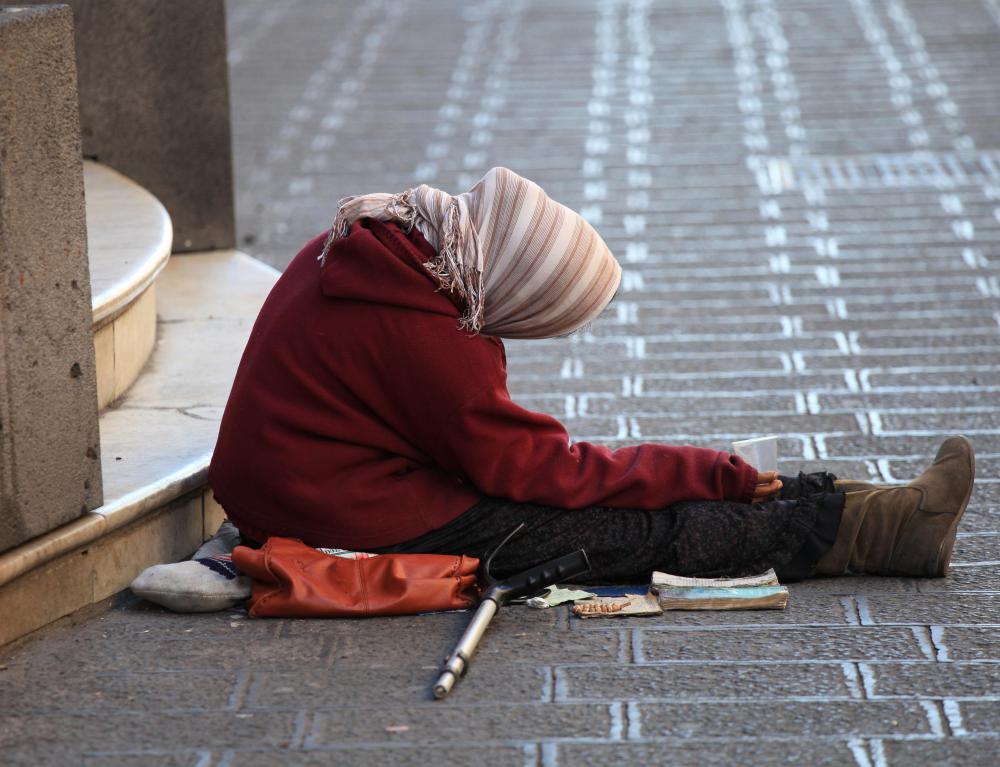At TheHealthBoard, we're committed to delivering accurate, trustworthy information. Our expert-authored content is rigorously fact-checked and sourced from credible authorities. Discover how we uphold the highest standards in providing you with reliable knowledge.
What Are the Different Types of Assisted Living for the Disabled?
Assisted living for the disabled is usually designed in such a way that it maximizes the independence of the disabled person without compromising safety. As such, assisted living can be very different depending on what sort of disability a person has. People with physical disabilities that do not impair mental functions may feel more comfortable in a facility among other people their own ages or other people with very similar disabilities. Mental disabilities are often accommodated in residential facilities. When disability and old age are both factors, standard assisted living facilities for seniors are usually used.
One of the most common types of assisted living for the disabled is the same type of facility that assists seniors who can no longer live independently. When the disabled person is in fact a senior, this is not problematic because the facility is often set up to accommodate many different stages of physical ability and mental functioning. Unfortunately, many young people also end up in senior accommodations because there are no other suitable facilities that offer assisted living for the disabled. Young people are often extremely isolated in these facilities and may face loneliness and depression.

Fortunately, there are also alternative facilities that offer assisted living for the disabled. Most disabled people feel that independent living is preferable to assisted living, but when that cannot be managed, it is highly desirable for disabled people to be surrounded by their peers. Facilities that accommodate people with purely physical disabilities strive to uphold the independence of the disabled person and his or her ability to function.

For people with mental illnesses, assisted living for the disabled might be much more restrictive. In fact, assisted living in this case often bears a resemblance to institutionalization, although there are some extremely good facilities available. People who have certain mental disabilities do need supervision for safety reasons, so these facilities are often less private than other assisted living situations.

One solution some people with disabilities prefer to traditional assisted living is to form groups and share a caretaker. When a disability is severe enough that special care is required but not severe enough to justify the reduction in independence caused by a move to an assisted living facility, a very small living group can be formed. By living together and sharing the costs of the caretaker and needed equipment, people with certain disabilities can still live independently and among chosen friends, which can be a positive experience when compared to the isolation that might be faced in a facility for seniors.
AS FEATURED ON:
AS FEATURED ON:

















Discussion Comments
With mental disability that sometimes comes with age in the form of dementia, you are confronted with a condition that progresses. Because of this you can be certain that the level of care you need is going to change as the condition gets worse.
It was difficult enough getting my mother to leave her home to go to the assisted living home the first time. I knew she would eventually need more care in the form of an assisted living nursing home and I didn't want to have to go through the stress of another move.
Fortunately, I was able to find a facility that offered different levels of care. They have different wings so that residents can be housed with other residents with the same challenges.
When my mother got to the point she needed more care, she simply changed rooms and she hardly notice since she was still around the same caregivers.
When considering an assisted living facility for a family member or for yourself you should not assume that they are all the same. Even if you find one that serves the needs of people in the same condition as you are in, you need to investigate the place carefully before making the final decision to move in.
One of the biggest complaints I have heard from residents in assisted living involves the food. Sometimes the complaints are based on the quality of the food, but just as often the complaints are about the amount of food served or the availability of food on demand.
Some assisted living homes have a strict schedule for when meals and snacks are served, and when residents miss a scheduled meal they have to wait until the next one. This can be an adjustment for adults who are accustomed to going into the kitchen and grabbing a bite to eat anytime they wish.
Post your comments